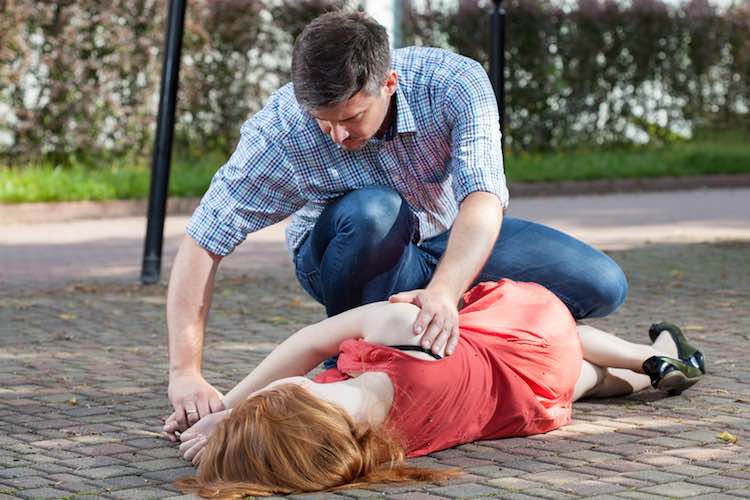Greg Thorkelson, MD with Danielle Miller, PA-C
Overdose is everywhere. In the United States, overdose deaths increased by 30% between 2019 and 2020, with approximately 107,000 deaths in 2021 alone.
In remembrance of International Overdose Awareness Day, August 31st, a question to ask yourself is: Do you know what an overdose looks like, and do you know what to do in the case of one? If not, take a few minutes to learn the warning signs and action steps you should take. It may save someone’s life. Remember, these are people just like you: someone’s daughter or son, someone’s friend, neighbor, coworker or relative. Overdose can unfortunately affect everyone. Someone who you know could be affected as overdosing does not discriminate.
Due in part to the shame and stigma surrounding this event, unintentional drug overdoses can be a silent killer. However, overdose deaths can be prevented. Unintentional overdose is possible even with prescription medicines. Talk to your doctor about the possibility of overdose and the risks associated with your medications, especially when combined with other substances, particularly alcohol. Even talking about overdose could save someone’s life.
Signs of An Overdose:
· Heavy breathing, snoring, gurgling
· Unresponsive but awake
· Limp body
· Seizures
· Slow or erratic pulse
The person may be experiencing hallucinations, chest pain, visual disturbances, diarrhea, stomach pain or drowsiness.
What To Do in the Case of Suspected Overdose:

· Suspect an Overdose? Call 911:
o Ensure the scene is safe for you to approach. If possible, remove any surroundings that could cause harm to you or the other person. Call an ambulance and tell the operator where you are and the current situation of the person. Don’t delay over concerns about
getting in trouble. Acting as a Good Samaritan is the best and right thing to do. Stay on the phone line and follow any commands given to you. Try to keep the person warm.
· Won’t Wake Up? Get Help!
o If the person is unconscious, put them in the recovery position. Do not leave them lying on their back. If they’re awake, try to keep them in a sitting position.

· Learn Rescue Breathing. It Could Save a Life!
o You may be the difference between life and death for someone experiencing an overdose. Time is crucial during this period of emergency. After calling 911 and if prompted by EMS, start CPR if the patient loses consciousness, they stop breathing or have no pulse. Even chest compressions alone can increase the odds of survival and recovery. Taking a basic first aid and CPR course can help in in many situations, including this one.
What Not to Do in the Case of Suspected Overdose:
· DO NOT leave them to “sleep it off”
o Blood alcohol and drug concentrations will continue to rise even after the substance has been stopped. Someone may appear fine enough to sleep, but likely will then not wake up.o
· DO NOT leave them to “walk it off”
o Many substances may impair brain function and coordination, putting the patient at more physical risk for injury.
· DO NOT give them water, food, or anything else
o This may interact with the substances already in their body. It can also delay necessary medical procedures and interventions. If a patient has a seizure or passes out, they may aspirate, which can lead to asphyxiation and death.
· DO NOT make them sick
o Certain substances interfere with our natural gag reflex. Induced vomiting can cause additional damage.
· DO NOT put them in a cold shower
o This may dangerously reduce body temperature and cause hypothermia.

Resources:
988: Crisis and Suicide Lifeline (formerly the National Suicide Prevention Lifeline 1-800-273-TALK (8255)) 24-hour, toll-free, confidential support for people in distress. Prevention and crisis resources for you or your loved ones.
1-800-662-HELP (4357) or text your zip code to 435748 (HELP4U): This Helpline provides 24-hour free and confidential treatment referral and information about mental and/or substance use disorders, prevention, and recovery in English and Spanish.
https://findtreatment.samhsa.gov/: Find a state-licensed treatment facility near you for substance use treatment
https://www.samhsa.gov/medication-assisted-treatment/find-treatment/treatment-practitioner-locator: Find information on locating practitioners and treatment programs authorized to treat opioids, such as heroin or prescription pain relievers.
https://dpt2.samhsa.gov/treatment/: Find treatment programs in your state that treat addiction and dependence on opioids, such as heroin or prescription pain relievers.
1-800-985-5990: SAMHSA’s Disaster Distress Helpline provides 24/7, 365-day-a-year crisis counseling and support to people experiencing emotional distress related to natural or human-caused disasters.
988 ext.1 or text 838255 or visit https://www.veteranscrisisline.net/: Reach caring, qualified responders with the Department of Veterans Affairs. Many of them are Veterans themselves.
1-800-WORKPLACE (967-5752): Assists employers and union representatives with policy development, drug testing, employee assistance, employee education, supervisor training, and program implementation.

